Mazda CX-5 vs Vauxhall Grandland - Differences and prices compared
Compare performance (141 HP vs 325 HP), boot space and price (30000 £ vs 32600 £ ) at a glance. Find out which car is the better choice for you – Mazda CX-5 or Vauxhall Grandland?
Costs and Efficiency:
Price and efficiency are key factors when choosing a car – and this is often where the real differences emerge.
Mazda CX-5 has a minimal advantage in terms of price – it starts at 30000 £ , while the Vauxhall Grandland costs 32600 £ . That’s a price difference of around 2562 £.
Fuel consumption also shows a difference: Vauxhall Grandland manages with 2.60 L and is therefore decisively more efficient than the Mazda CX-5 with 7 L. The difference is about 4.40 L per 100 km.
Engine and Performance:
Power, torque and acceleration say a lot about how a car feels on the road. This is where you see which model delivers more driving dynamics.
When it comes to engine power, the Vauxhall Grandland has a decisively edge – offering 325 HP compared to 141 HP. That’s roughly 184 HP more horsepower.
In acceleration from 0 to 100 km/h, the Vauxhall Grandland is convincingly quicker – completing the sprint in 6.10 s, while the Mazda CX-5 takes 10.50 s. That’s about 4.40 s faster.
In terms of top speed, the Vauxhall Grandland performs slightly better – reaching 220 km/h, while the Mazda CX-5 tops out at 195 km/h. The difference is around 25 km/h.
There’s also a difference in torque: Vauxhall Grandland pulls clearly stronger with 509 Nm compared to 238 Nm. That’s about 271 Nm difference.
Space and Everyday Use:
Beyond pure performance, interior space and usability matter most in daily life. This is where you see which car is more practical and versatile.
Both vehicles offer seating for 5 people.
In curb weight, Mazda CX-5 is hardly perceptible lighter – 1629 kg compared to 1675 kg. The difference is around 46 kg.
In terms of boot space, the Mazda CX-5 offers minimal more room – 583 L compared to 550 L. That’s a difference of about 33 L.
In maximum load capacity, the Mazda CX-5 performs a bit better – up to 2019 L, which is about 374 L more than the Vauxhall Grandland.
Who wins the race in the data check?
The Vauxhall Grandland holds a decisive overall lead in the objective data comparison.
This result only shows which model scores more points on paper – not which of the two cars feels right for you.
Costs and Consumption
View detailed analysis
Engine and Performance
View detailed analysis
Dimensions and Body
View detailed analysis
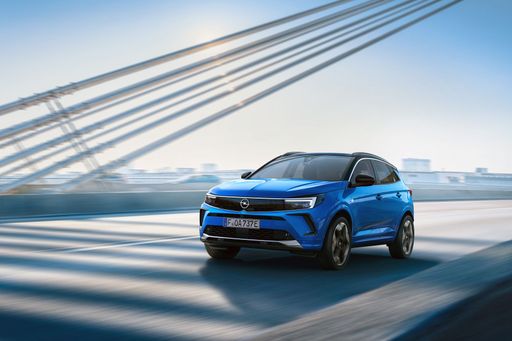
Vauxhall Grandland
Mazda CX-5
The Mazda CX-5 blends elegant, athletic styling with a surprisingly engaging driving character, turning routine trips into small, satisfying adventures. Inside it feels thoughtfully built and comfortable, offering sensible practicality and a premium feel that punches above its price.
details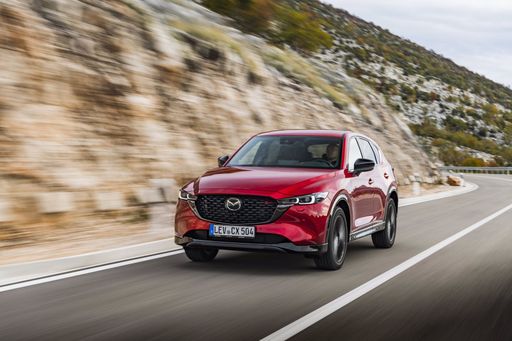
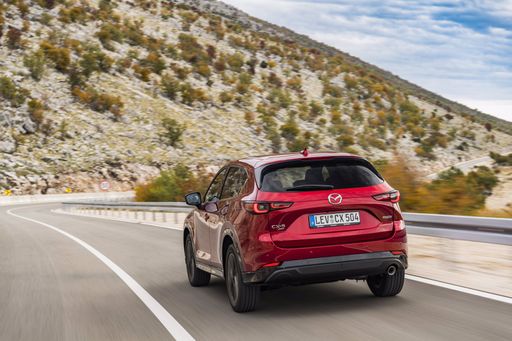
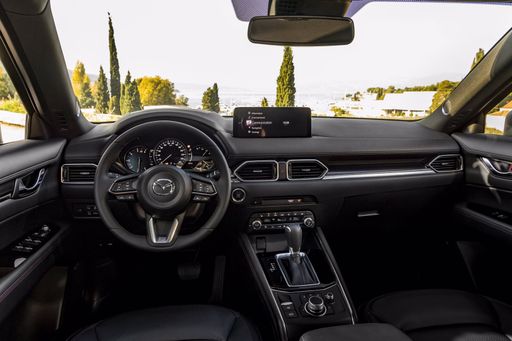
Vauxhall Grandland
The Opel Grandland feels like a sensible, well-rounded SUV — neat styling, a spacious cabin and a composed ride that turns daily driving into a quietly pleasant experience. It’s a smart choice for buyers who want modern tech, good economy and a dash of German practicality without shouting for attention.
details
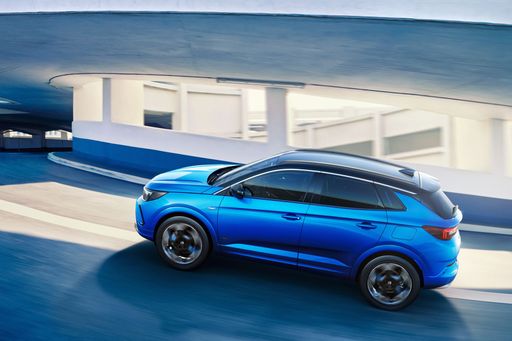

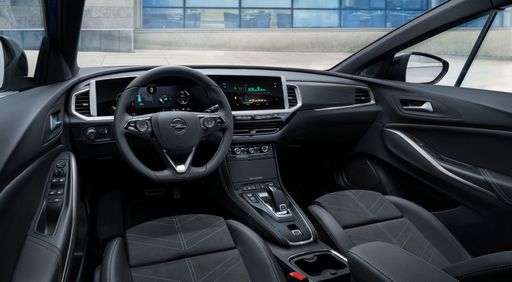
Costs and Consumption |
|
|---|---|
|
Price
30000 - 39500 £
|
Price
32600 - 51400 £
|
|
Consumption L/100km
7 - 7.4 L
|
Consumption L/100km
2.6 - 5.6 L
|
|
Consumption kWh/100km
-
|
Consumption kWh/100km
17.8 - 18.6 kWh
|
|
Electric Range
-
|
Electric Range
82 - 694 km
|
|
Battery Capacity
-
|
Battery Capacity
-
|
|
co2
157 - 168 g/km
|
co2
0 - 126 g/km
|
|
Fuel tank capacity
56 - 58 L
|
Fuel tank capacity
55 L
|
Dimensions and Body |
|
|---|---|
|
Body Type
SUV
|
Body Type
SUV
|
|
Seats
5
|
Seats
5
|
|
Doors
5
|
Doors
5
|
|
Curb weight
1629 - 1671 kg
|
Curb weight
1675 - 2325 kg
|
|
Trunk capacity
583 L
|
Trunk capacity
485 - 550 L
|
|
Length
4690 mm
|
Length
4650 mm
|
|
Width
1860 mm
|
Width
1905 mm
|
|
Height
1695 mm
|
Height
1665 mm
|
|
Max trunk capacity
2019 L
|
Max trunk capacity
1580 - 1645 L
|
|
Payload
-
|
Payload
425 - 495 kg
|
Engine and Performance |
|
|---|---|
|
Engine Type
Petrol MHEV
|
Engine Type
Electric, Petrol MHEV, Plugin Hybrid
|
|
Transmission
Automatic
|
Transmission
Automatic
|
|
Transmission Detail
Automatic Gearbox
|
Transmission Detail
Reduction Gearbox, Dual-Clutch Automatic
|
|
Drive Type
Front-Wheel Drive, All-Wheel Drive
|
Drive Type
Front-Wheel Drive, All-Wheel Drive
|
|
Power HP
141 HP
|
Power HP
145 - 325 HP
|
|
Acceleration 0-100km/h
10.5 - 10.9 s
|
Acceleration 0-100km/h
6.1 - 10.2 s
|
|
Max Speed
195 km/h
|
Max Speed
170 - 220 km/h
|
|
Torque
238 Nm
|
Torque
230 - 509 Nm
|
|
Number of Cylinders
4
|
Number of Cylinders
3 - 4
|
|
Power kW
104 kW
|
Power kW
107 - 239 kW
|
|
Engine capacity
2488 cm3
|
Engine capacity
1199 - 1598 cm3
|
General |
|
|---|---|
|
Model Year
2025
|
Model Year
2024 - 2025
|
|
CO2 Efficiency Class
F
|
CO2 Efficiency Class
A, D, B
|
|
Brand
Mazda
|
Brand
Vauxhall
|
What drivetrain options does the Mazda CX-5 have?
The Mazda CX-5 is offered with Front-Wheel Drive or All-Wheel Drive.




